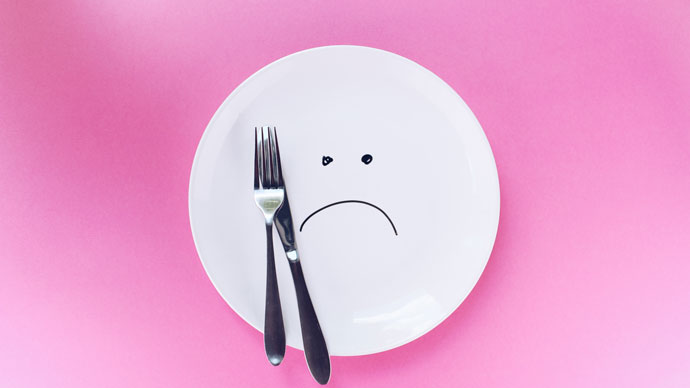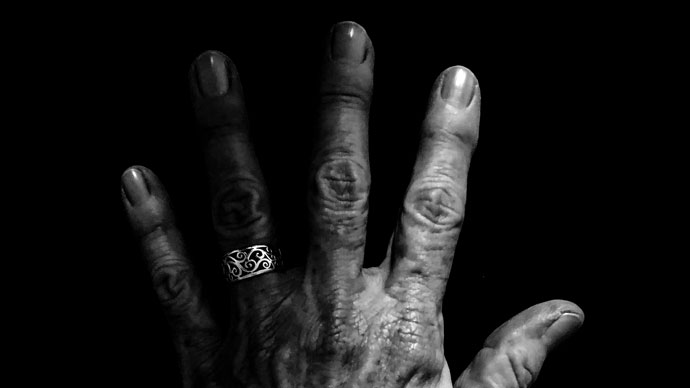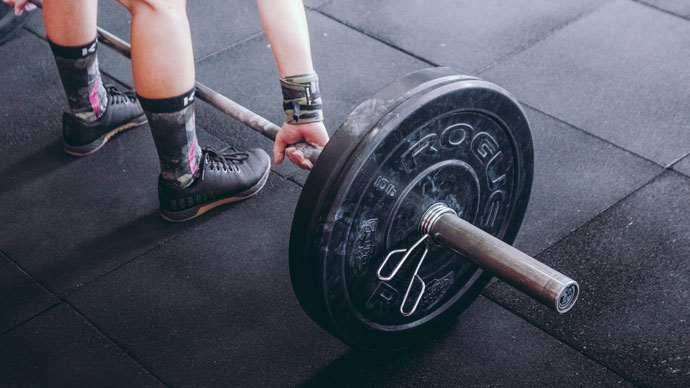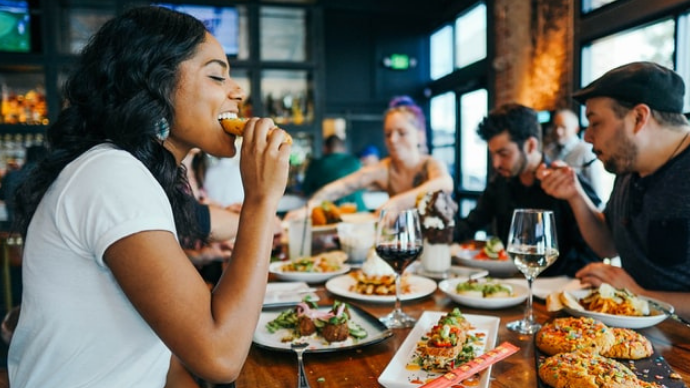Though we believe fat is bad, it’s not our fault.
“Fat” has been promoted as a dirty word in American culture since World War II, when the diet and fitness industries promoted mass obsession with weight and body shape.
“In the United States, fat is seen as repulsive, ugly, unclean, obscene and above all as something to lose,” wrote Jana Evans Braziel in her book “Bodies Out of Bounds.”
Our culture has indoctrinated us to fear fat if we want to be good, happy and healthy. As a result, those assumptions are accepted as truths.
All weight gain is bad; all weight loss is good.
All thin people are happy; all fat people are unhappy.
All thin people are healthy; all fat people are unhealthy.
As a former exercise professional and “eat this, not that” nutritionist, I, too, believed those misguided statements as truth. It’s the constant narrative that we hear, see and feel every day.
I am asking you to challenge those assumptions. Critically analyze those statements instead of eating up everything we’ve been fed over the generations about bodies and fat. Let’s elevate the way we speak about body fat in our own bodies and other bodies. It matters.
Question fat phobia
First, let’s recognize that we are all affected by weight stigma, regardless of our shape, size, age, gender and more. We may live in fear of getting fat, or we may struggle daily trying to (or believing we need to) rid ourselves of it. It may affect us personally or affect someone we love.
We’re paying dearly for this fear of fat in our country and our community. Consider the following stories from Jackson Hole.
A 55 year-old woman avoids going to her favorite yoga class because she’s embarrassed by her reflection in the mirror. Yoga feeds her spirit, but she can’t bear the pain of seeing her own image.
A divorced man in his 40s spends hours working out at the gym, agonizing over his changing body and trying to reclaim the body he had in his 30s. He feels the pressure to have a ripped, masculine “Jackson” body.
A teenage girl feels ashamed at the doctor’s office after being weighed and told to lose weight. It was assumed that she didn’t workout and eat healthy, when, in fact, she did.
A mom feels embarrassed by her post-baby body. She won’t take her kids to the rec center because she’d have to wear a swimsuit.
A woman in her 30s struggles with an eating disorder and is complimented for her thin body. The compliments reinforce her belief that thin is ideal and healthy and that fat is “bad.”
You get the picture. We dread trying on clothes. We isolate ourselves by declining invitations to places where we can’t control the food. We buy the Skinny Buddha tea, hopeful. We casually bash our jiggly arms in daily conversations with our friends. We bake cookies for our kids, but we won’t have any, or at best, “just one.”
These are our stories, our experiences living in a body in Jackson and in our country. It’s time for us to make an investment in changing how we speak about our own and other bodies so we can tell new stories, because it’s costing us.
Fearing fat comes at a cost
Fat phobia is keeping us from living our lives fully.
Our culture’s fear and hatred of fat holds us hostage, trapping us with hyperfocused food rules and obsessive exercise routines to maintain our bodies. It restricts us, keeps us stuck in a waiting zone to get on with our lives, if or when we change our bodies.
As you read these stories I imagine you felt the loss of precious physical, mental and emotional energy, your own or someone you love’s, deep in your heart.
We will remain stuck in this fat-fear cycle year after year unless we make a radical shift and change how we as a society speak about fat and our bodies.
Let’s begin by banning fat talk.
I think we can agree that making negative comments about our own bodies and others’ bodies benefits no one. It keeps us stuck believing there’s a “right way” to have a body. It keeps us from the reality that body diversity is part of the human experience. It keeps us believing the statements that culture has fed us about body size as truths.
When you criticize your own body or judge another body ask yourself, “Who’s benefiting from my insecurities?” The quick answer: the $70 billion diet industry.
On the flip side we must also recognize that comments we believed are positive, such as complimenting someone for weight loss, aren’t always a compliment. They can, in fact, be harmful.
Before you make any comment, check yourself. Pause. Reflect. See your own humanness and see the humans living inside these bodies, not just the bodies.
The assumptions that society has led us to believe are not blanket truths. Question them because the belief that fat is a four-letter word, “repulsive, ugly, unclean, obscene and above all as something to lose,” is keeping us from living fully in this one beautiful life.
“What if you wake up some day, and you’re 65 or 75, and you never got your memoir written; or you didn’t go swimming in warm pools and oceans all those years because your thighs were jiggly and you had a nice big comfortable tummy,” Anne Lamott wrote. “It’s going to break your heart. Don’t let this happen.”
Let’s not end up here. Live fully today.
Like yourself. Be a rebel.
(This article was published in the November 28, 2018 Jackson Hole News and Guide).
















